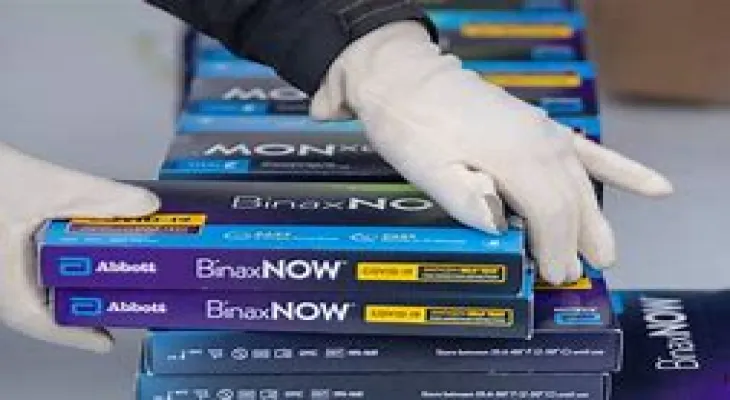Search here
Newspaper
Search here

Arab Canada News
News

Published: July 29, 2023
The federal government sits on a stockpile of 39 million additional rapid tests for the coronavirus and is struggling to dispose of them without throwing them in the trash, according to an internal memo from Health Canada.
When the Omicron variant of the virus began spreading across Canada in late 2021, the government quickly purchased rapid tests and distributed most of them to the provinces so people could test themselves for the virus at home.
Now that far fewer people are subjecting themselves to the brain-tickling sensation of COVID testing outside hospitals and other healthcare settings, it seems the government has more than it knows what to do with.
Staff wrote to the Canadian deputy minister of health in a memo dated March 25, "In recognition of the volume of tests in play and the challenge of shedding this quantity over a specified period of time, it is anticipated that disposal of expired tests will be required," the memo was obtained through federal access to information laws.
Rapid tests were deemed essential and valuable in early 2022, as regular testing capacity was reserved only for certain cases in most provinces, and since the onset of the pandemic, Canada has spent nearly $5 billion on rapid tests.
Even after the spike in Omicron cases stabilized, the government continued to stockpile tests in case the country experienced another significant wave of infections.
That wave never came, and with public health restrictions being lifted gradually, the government found itself with a stockpile of around 93 million tests as of March 21.
Provinces and territories now have sufficient supplies on hand to conduct eight tests per Canadian, and the federal health department plans to keep up to 55 million in reserve to prepare for the next emergency, leaving an additional 39 million as of the end of March.
Staff suggested several ways to offload the tests, but each comes with its own challenges, the biggest obstacle being their short shelf life, which usually lasts only a year or two.
The memo states, "In practical terms, offering tests with less than eight to 12 months of shelf life may pose challenges, although specific reasons for this are withheld."
So far, no tests have been disposed of, although the administration says that 2.1 million tests are either damaged, expired, or considered incompatible and cannot be distributed, and another 38,722 are expected to expire in August and September, the memo shows, with most tests set to expire in 2024.
The department recommended shipping tests overseas to countries in need or even paying manufacturers to take back the tests, but none of those things have happened so far.
Health Canada stated in a written statement that some tests are being donated to nonprofits, public institutions, and charities through GC Donate, which is part of the government's online surplus site, and they are also being shared among government departments for employee testing programs.
The Government of Canada is also actively working with the World Health Organization, the Canadian Red Cross, and other NGOs and private institutions to better understand global demand and explore the feasibility of international donation opportunities.
Financially and environmentally sound disposal will only be considered once all options for deployment and divestment have been exhausted, and the tests are deemed unsuitable for distribution.
In the memo, staff stated that they plan to formulate a plan to begin disposing of unused tests for the deputy minister's approval.
Comments